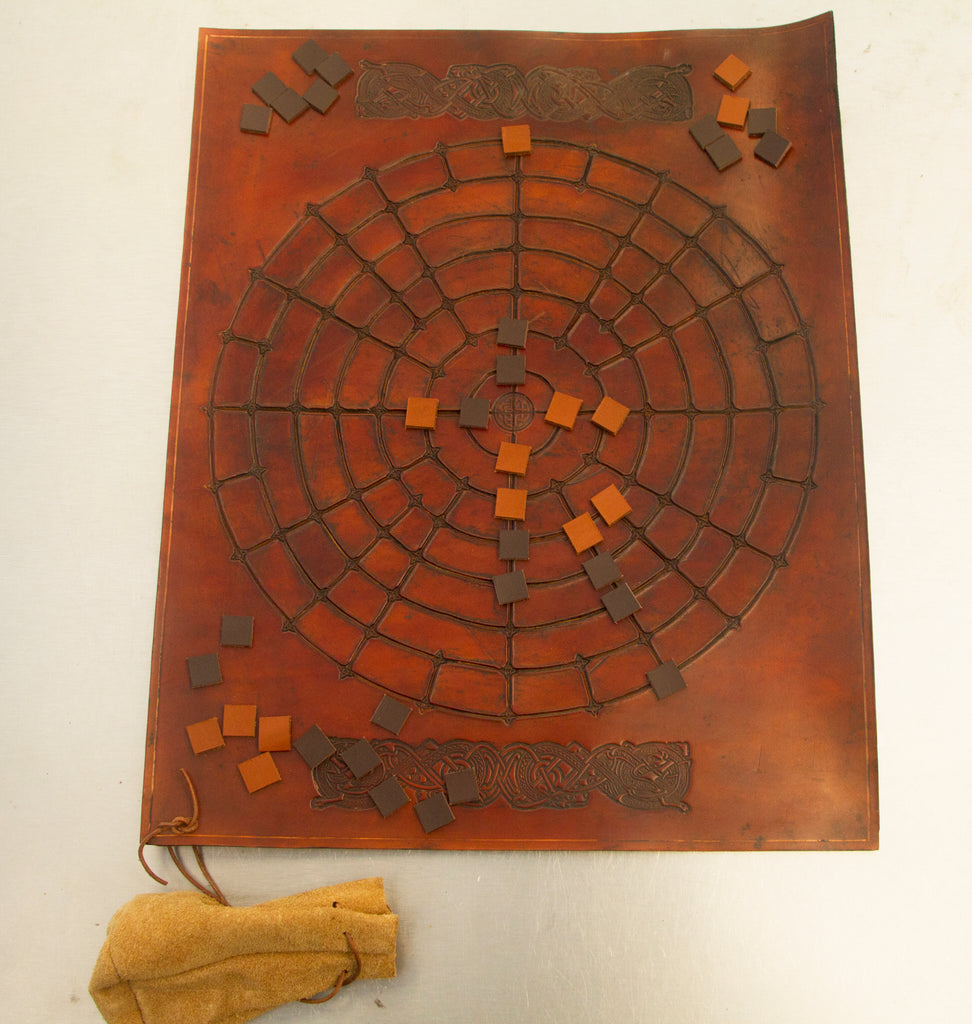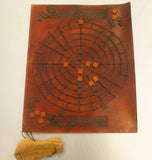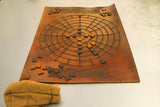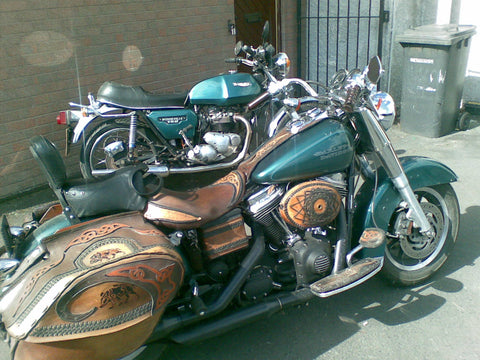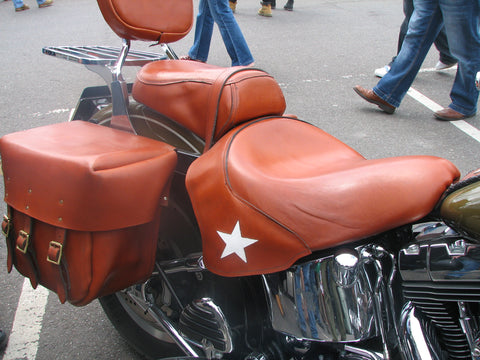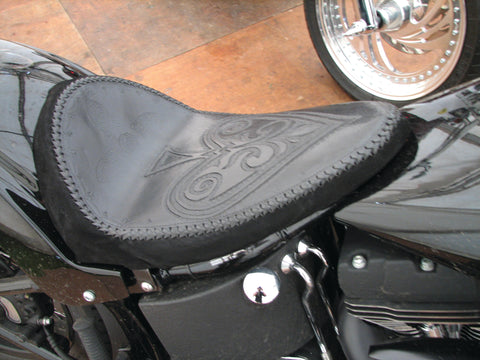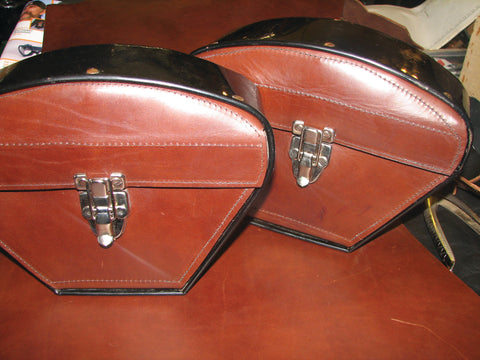Play Fidchell, the ancient Celtic Board Game.
Comes with a handmade Fidchell board, hand carved from 3mm Top quality veg tan leather, a set of rules and a set of 30 each of dark and tan leather pieces (27 required)
This leather board will age beautifully and should last a few generations if cared for.
Fidchell, or gwyddbwyll in Welsh, was a board game popular among the ancient Celts.
Fidchell was played between two people who moved an equal number of pieces across a board; the board shared its name with the game played upon it. The name of the game in multiple Celtic languages is a compound translating to "wood-intelligence" or "wood-sense". The fact that the compound is identical in both languages suggests that it is of extreme antiquity, with the unattested earlier form being reconstructed "wood-understanding" in Common Celtic.
The game is often compared with chess, though this is evidently erroneous, as chess was unknown in Europe until the 12th C. Fidchell or gwyddbwyll is mentioned often in ancient Celtic legends and lore, but the exact form of the game is open to speculation due to lack of detail on the rules, playing pieces, and the board. It is clear that it was played on a board with opposing sets of pieces in equal numbers.
The legends describe fidchell as a game played by royalty and by gods. In legend, it was invented by Lugh, god of light and inspiration, and was played skilfully by his son, the hero Cú Chulainn. A series of fidchell games form an important episode in the story Tochmarc Étaíne. Lavish, sometimes mystical gwyddbwyll boards appear often in medieval Welsh literature. In The Dream of Rhonabwy, a prose tale associated with the Mabinogion, King Arthur and Owain mab Urien play the game with golden men on a silver board
Fidchell was played between two people who moved an equal number of pieces across a board; the board shared its name with the game played upon it. The name of the game in multiple Celtic languages is a compound translating to "wood-intelligence" or "wood-sense". The fact that the compound is identical in both languages suggests that it is of extreme antiquity, with the unattested earlier form being reconstructed "wood-understanding" in Common Celtic.
The game is often compared with chess, though this is evidently erroneous, as chess was unknown in Europe until the 12th C. Fidchell or gwyddbwyll is mentioned often in ancient Celtic legends and lore, but the exact form of the game is open to speculation due to lack of detail on the rules, playing pieces, and the board. It is clear that it was played on a board with opposing sets of pieces in equal numbers.
The legends describe fidchell as a game played by royalty and by gods. In legend, it was invented by Lugh, god of light and inspiration, and was played skilfully by his son, the hero Cú Chulainn. A series of fidchell games form an important episode in the story Tochmarc Étaíne. Lavish, sometimes mystical gwyddbwyll boards appear often in medieval Welsh literature. In The Dream of Rhonabwy, a prose tale associated with the Mabinogion, King Arthur and Owain mab Urien play the game with golden men on a silver board
Comes with a set of 27 black leather and 27 tan leather soldiers

